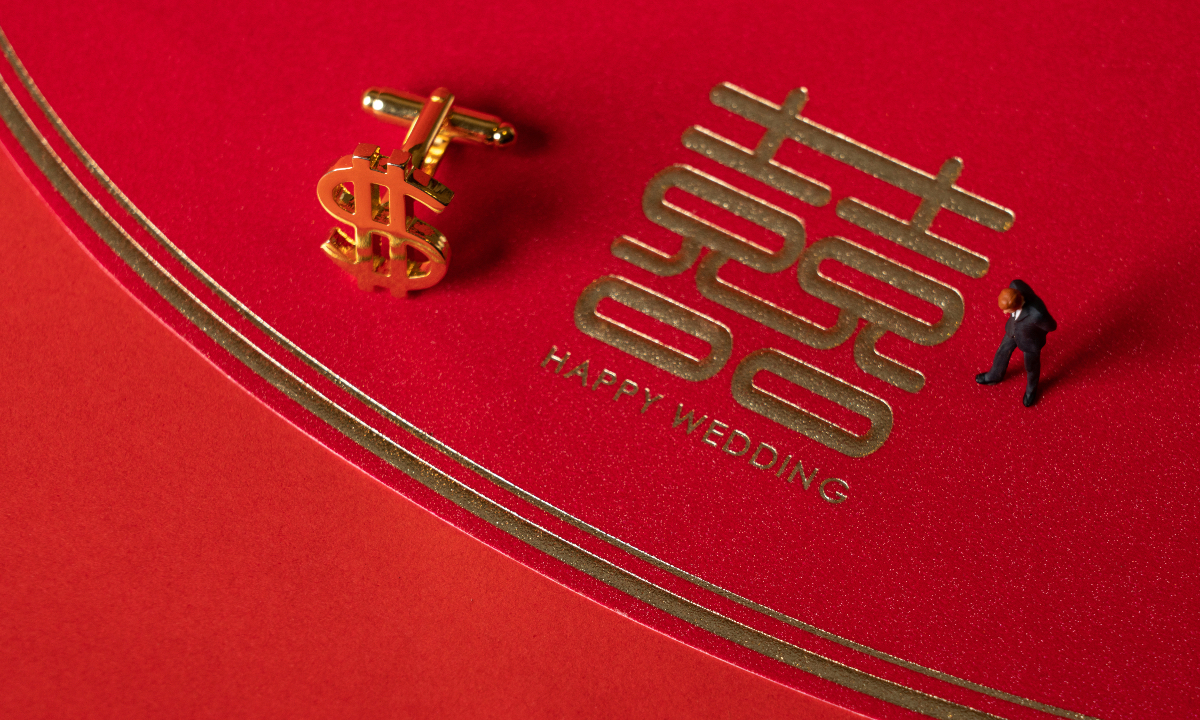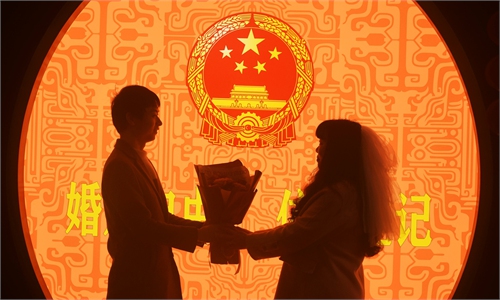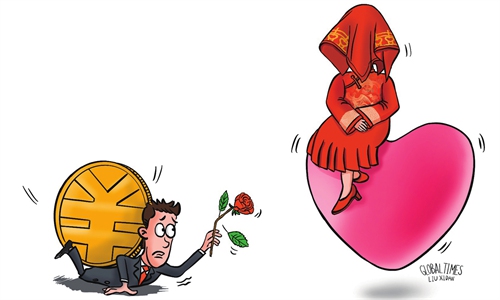China’s top court released judicial interpretation to regulate bride price and dowry-related disputes

Photo: IC
In order to properly handle disputes related to bride price and dowry and balance the interests of both parties, China’s top court on Thursday released the judicial interpretation to regulate the key and challenging problems in judicial practice in terms of the scope of dowry recognition, principles of returning bride price and qualifications of litigants.
The provisions on the application of law in a certain number of issues concerning the cases of disputes related to bride price released by China’s Supreme People’s Court will take effect on February 1, 2024.
The provisions explicitly prohibit soliciting property under the guise of marriage, using betrothal gifts as a pretext. If the gift-giver requests a return, the people’s court shall support such claims.
The provisions also clarify the distinction between betrothal gifts and general gifts exchanged during the courtship period. Despite the similar purposes and motivations of betrothal gifts and general gifts, the determination of whether a particular payment constitutes betrothal gifts can be assessed based on the purpose of the giver’s transfer of property and comprehensive consideration should be given to local customs of both parties, the timing and the manner of the transfer, the value of the property, and the identities of the payer and recipient.
For example, facts such as whether the payment occurred during the stage of discussing marriage, whether there were discussions involving both parties' parents or intermediaries, and the value of the property, can be investigated.
The provisions also exclude several categories of property that do not qualify as bride price or dowry, including the small-valued gifts or cash given by one party on special occasions such as holidays or birthdays with special commemorative meaning, and expenditures made by one party for daily consumption or to express affection and enhance the relationship.
Such property or expenditures, with relatively smaller amounts, are primarily aimed at enhancing the relationship. In a case of divorce or termination of engagement, such property may not be subject to return.
In response to the new situations and new problems concerning betrothal gifts-related disputes in recent years, the provisions also improved the rules regarding the return of bride price and dowry.
In spite of the stipulations in the Civil Code in dealing with disputes over betrothal gifts when couples break up, there still exist two circumstances where there exists no regulation can be referred to.
The first circumstance is that both parties have completed the marriage registration procedures and have lived together. When one party requests the return of bride price or dowry that were given in accordance with customs in the event of divorce, the people’s court generally should not support such claims.
However, the duration of cohabitation should be considered as a crucial factor in determining whether betrothal gifts should be returned and in deciding the proportion of the return.
Under the second circumstance, if both parties have not completed the marriage registration, the bride price should be returned in principle, but consideration should be given to the actual cohabitation of both parties, especially when the female has experienced pregnancy or childbirth.
In disputes concerning the return of betrothal gifts, the primary dispute in procedure revolves around whether the parents of both parties to the engagement can serve as litigants in the lawsuit.
In traditional Chinese customs, marriages of children are typically arranged by parents, and the giving and receiving of betrothal gifts often involve the participation of both parties’ parents.
The provisions specify the litigants in lawsuits involving betrothal gifts disputes, stipulating that the parents of both parties to the engagement can be litigants in cases of engagement property disputes.
Global Times




